As A Latine And Someone Diagnosed With OCD, I Want To Talk About Bruno And How He Is Presented In The
As a Latine and someone diagnosed with OCD, I want to talk about Bruno and how he is presented in the film.
A lot of Latinos, specifically Colombians, have argued that Bruno can’t have OCD because he performs standard superstitious rituals like knocking on wood, crossing his fingers, etc.
It is important to note that superstition is incredibly common in Latino communities. I have family and friends who partake in superstitious rituals in overt ways without being diagnosed with OCD. I believe the heightened spirituality and expression in Latino communities compared to gringo communities in the US is why so many Latinos are defending his rituals and are pushing back against Bruno being seen as OCD since he is performing standard rituals within the community. This post is not to argue that these rituals aren’t common superstitions, nor that it’s wrong to interpret him as not having OCD. This is more to discuss why people interpret him as having OCD and to clarify some misconceptions about the relationship of OCD and superstitious rituals.
Let’s discuss how OCD works and then why it might apply to Bruno Madrigal.
Obsessive Compulsive Disorder is a subset of other anxiety disorders. People with said disorder frequently have intrusive thoughts or urges that force them to perform a certain action to ease this anxiety (compulsions). These compulsions can literally be anything. It can be repeating a certain phrase, walking a certain way, or even self destructive. These actions are designed as a preventative measure to ease anxiety, but ironically they have the opposite effect by producing more anxiety if the action is performed and only produce temporary relief.
These actions might be things that lots of neurotypical people do (ex. sorting books by color). What matters for the diagnosis is that the person in question feels like they have to perform the action and feel immense distress when they don’t.
So, how does that compare to superstitions? Superstitions are rituals that people perform also to prevent bad things from happening. The difference here is context. When people perform superstitious rituals, they do not experience immense distress at not performing the action correctly or at all. For example: “I’m hoping it doesn’t rain on my wedding day. Knock on wood.” The person in question is specifically performing this action to prevent rain from occurring on their wedding day. They do not feel like they have to perform the ritual and do not experience extreme distress as a consequence for not performing the action.
For someone with OCD, the ritual is far more specific, repetitive, and includes a deep sense of dread when not performed. For example: “I just thought that I might have rain on my wedding day, so I must knock exactly three times and if I don’t do the pattern exactly right, I will have to re-perform this action until it is. I will also have to do this ritual every single time I think of rain on my wedding day because then I jinxed it by thinking about it.” The repetition, sense of dread, and how long the ritual is present all indicate that this is a compulsion rather than just warding off bad luck.
OCD and superstitious rituals are often extremely difficult to distinguish from one another which is why it is difficult to divorce them when interpreting text. In fact, the two are often tied together because they follow the same, “If I don’t do X, then Y will happen, so I must do X,” logic.
Let’s look at Bruno now. He has a few ritualized activities. He knocks on wood while saying, “Knock, knock, knock on wood,” ending with knocking on his head.
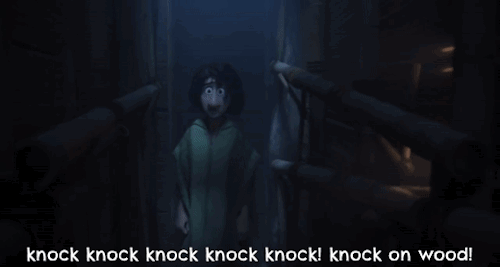
[GIf Description: Bruno Madrigal is walking down a hallway. He begins by holding his breath and crossing his fingers. He releases his breath and begins knocking on wooden planks as he passes them ending with him knocking himself on the head.There is text at the bottom of the gif that says, “knock knock knock knock knock! knock on wood!” /end ID]
He avoids stepping on cracks while singing, “Sana, sana, colita de rana. Si no sana hoy sanara mañana.”

[Image Description: A screenshot of page 62 of the official Encanto script. The script says, “Tio Bruno: ‘Sugar.’ (he tosses sugar on her)/ And keeps walking past rows of Hanging Aloe Plants, then does a hop skip and a jump over a series of cracks on the ground. / Tio Bruno (continued): ‘Sana sana, colita de rana.’ “/end ID]
He throws salt and sugar over his shoulders.

[Gif Description: Bruno Madrigal is sitting in a rainforest clearing. He is closing his eyes and holding a pile of salt in his right hand. He flings the salt over his left shoulder and lights a match. There is text that says, “swoosh,” as he performs the ritual. /end ID]
He holds his breath and crosses his fingers when walking through entrances/exits or sometimes down hallways.

[Gif Description: Bruno Madrigal is crossing his fingers and holding his breath as he walks down a hallway. /end ID]
All of these are pretty standard rituals for superstition and bringing on good luck. I’ve certainly known people who openly knock on wood and throw sugar over their left shoulder, particularly in Latino communities. However, what matters is how it is presented and whether it is compulsory. So, let’s look at how it is presented in the film.
He performs these rituals at very specific times in the story. His knocking on wood and holding his breath are the most common so we’ll look at those first. He knocks on wood in three separate instances. The first and second instance is when he first meets Mirabel just before and after he enters the area of the house with the cracks he has patched. The third time is when he is entering the secret entrance into the walls of the house. As for holding his breath and crossing his fingers, he first performs it when entering the hallway with all of the cracks. The second time is when he is entering the portrait into the walls.
In the first instance of both rituals, he stops the conversation he is having with Mirabel to perform these rituals and then resumes acting as if nothing happened. The final instance is at the end of a conversation with Mirabel. Superstitious behaviors don’t tend to be disruptive or distracting. Usually people knock on wood after ending a sentence whereas Bruno performs this ritual while Mirabel is speaking to him, disrupting the flow of conversation. It is also important to note that Bruno is unique for performing them, further othering his character.
OCD, is usually single-minded. Individuals can avoid performing the ritual, but doing so causes immense distress. The obtrusiveness of the action indicates that it is more likely OCD than superstition.
Looking at how it is presented in the text, it appears that these rituals are supposed to be strange and unique to Bruno. Nobody else performs them and Mirabel is confused by them.
Let’s look at what this might mean thematically.
In the film, Bruno is clearly presented as awkward and socially anxious. We can easily interpret this as a consequence of him living in the walls for a decade with Mirabel asking, “How long have you been down here?” when Bruno introduces her to Hernando and Jorge. While she doesn’t necessarily react the same way to his various rituals, these superstitious actions can be seen as a consequence of his isolation. He is clearly supposed to be considered the weird uncle, so incorporating heightened superstition plays into that role and adds to his stigmatization as being “Bad Luck Bruno.” Having OCD would make sense as an interpretation merely to add to his othering in the film and clear instability after being isolated for so long. What’s more, Bruno can be interpreted as the “Identified Patient” in the family with how he was treated like there was something wrong with him. This constant blame and othering from his family would likely push him to want to prevent further isolation because of his bad luck. Furthermore, it feeds into a common experience in Latino households to diminish the neurodivergence/ other disabilities of members in the household. It is not that uncommon for Latino households to ignore neurodivergence because “everyone is like that.”
Personally as someone with OCD and a Latine, I read Bruno as having OCD because he performs rituals to, what appears to be, a compulsory level. He may have reasons for these compulsions and common superstition might be part of it, but this is true for my own compulsions as well. I also have to avoid stepping on cracks. I learned about the superstition of stepping on a crack and thus had to perform precise rituals in order to avoid stepping on them. I experienced and continue to experience major distress because of this superstitious ritual. Yes, it is a common superstition, but it became a compulsion for me because the bad luck became an anxiety trigger.
Looking at how Bruno is presented, it’s entirely possible that this is what happened to him based on what we know. He is related to Bad Luck and ostracized for it. He performs common rituals to ward off bad luck. He is further ostracized for said strange behavior.
Now, there is evidence online for him being OCD outside of the text by the writers.

[Image Description: A screenshot of page 61 of the Encanto script. The script says, “Tio Bruno: (tapping a wall, OCD) Knock, knock, knock. Knock on wood.” /end ID]
Clearly, he was intended to have OCD by the writers. Now, most people are not going to pull up the script to see that he is intended to have OCD explicitly by the text, but there is still evidence in the film to support it as I laid out above.
A lot of Latinos don’t want to acknowledge the possibility of him having OCD because it feels like normal aspects of our culture are being erased. The fact Bruno has OCD does not negate his latin culture, nor does it negate how superstition is tied to Latinos. Just because I relate to Bruno and his OCD doesn’t mean he’s no longer Latino and it doesn’t suddenly mean you and/or your family have OCD. We’re all part of the same community and we’re all going to relate to certain characters in different ways. This is more just to state that superstitious rituals can be OCD rituals as well.
TL;DR: Bruno Madrigal was intended to be OCD by the text, but many Latinos are hesitant to agree because they feel it erases common Latino superstition. It is not uncommon for superstitions to become OCD compulsions and it is often difficult to distinguish the two in general which is why people interpret Bruno in different ways.
More Posts from Khayltille and Others

Mycroft Territory (Part One)
This is the second of my blog resources for fanfic writers who want to create a better sense of place by including stuff about London that is relevant to specific areas.
In this case, I’m talking about St James, Westminster and Whitehall,, all three of which add up to the seat of British Government.

St James
Let’s take St James first. Bounded to the north by Piccadilly and Mayfair, to the west by Green Park, to the south by The Mall and St James’s Part and to the east by Haymarket. The home of the Buckingham Palace, St James’ Palace and Clarence House, royal residences to this day. Think aristocrats, think of Savile Row and Jermyn Street. The Mall, and of course, The Diogenes Club.

If you’ve been a tourist in London, this is an area you are highly likely to have been to visit. You may, however, be less familiar with its history.
The area’s name is linked to St James the Lesser (where have we heard THAT name before? Mary’s skip code and John’s bonfire night) It was the name of a leper hospital in the 12th century which was knocked down to build St James’s Palace.
In the 17th century the area developed as a residential location for the British aristocracy. Clarence House, Spencer House, Lancaster House, Marlborough House- these are all masterpieces of English architecture built for the aristocrats to enjoy the “London season” before returning to their estates in the country.
By the mid-19th century, it was the chosen place for a whole slew of gentlemen’s clubs: The Reform, The Travellers, The RAC, The Oxford and Cambridge Club, The Army and Navy Club, The East India Club, etc. Since the re-development of London post WW2, the area has moved from residential to more commercial premises. That said, many of the gentlemen’s outfitters of Savile Row and Jermyn Street have been there for centuries, and Fortnum & Mason’s was their local grocery store.
Whitehall
Whitehall is small but packed with power because this is civil service land. The Ministry of Defence, Horse Guards, etc now, but the history is even more interesting. Ever since the 12th century Whitehall was the route from Charing Cross to Westminster. Henry VIIth built “York Palace” on the route, which Henry VIIIth re-named Whitehall Palace. It was a rather splendid place. He married Anne Boleyn here. It was the palace of the Stuarts, too. By 1680 it looked like this:

If you zoom in, you will notice something interesting.

Yes, that’s SCOTLAND YARD, the very first one. As the Stuarts were Scottish kings, this is what the area was called. And it was the site much later of the very first home of the Metropolitan Police.
When New Scotland Yard moved from Victoria to its new home, it was to a site on the Thames that is on this map, just above the V in River.

So, now you know why it was called Scotland Yard.
To be continued in Part Two, Westminster (which includes Belgravia
WAIT WAIT WAIT
Okay so the triplet’s outfits are their own colors right?? Blue for Julieta, yellow for Pepa, and green for Bruno—
Except I just noticed that while Julieta and Pepa’s outfits are completely their own colors right

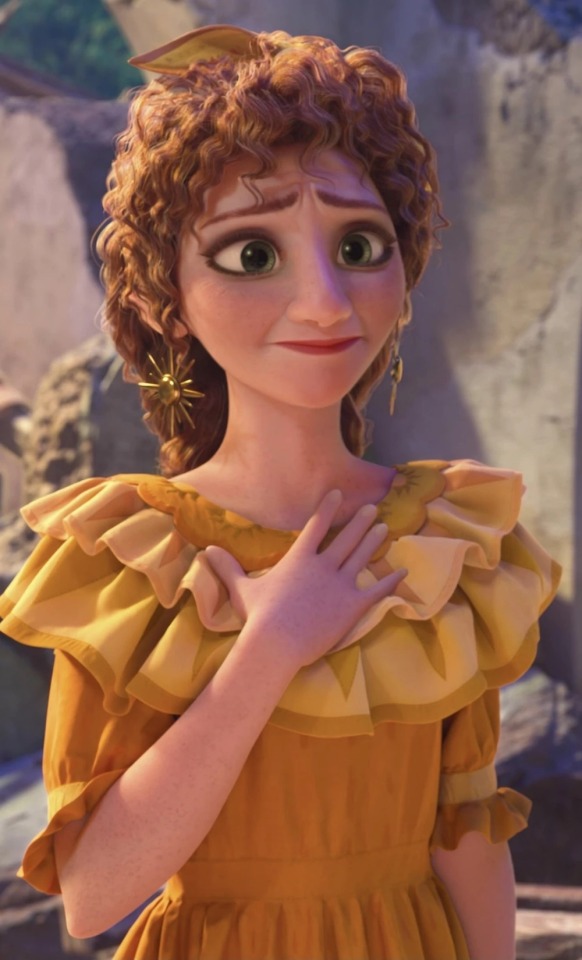
underneath Bruno’s green ruana am I crazy or does he almost (or used to?) match Abuela


And by extension what does this say about the triplet’s personalities, relationships with Alma, individualism/dependency/what have you because with how symbolic everyone ELSE’s colors are (like Isabela’s dress being more purple than blue reflecting how she’s Alma’s favorite, etc) it’s gotta mean Something right




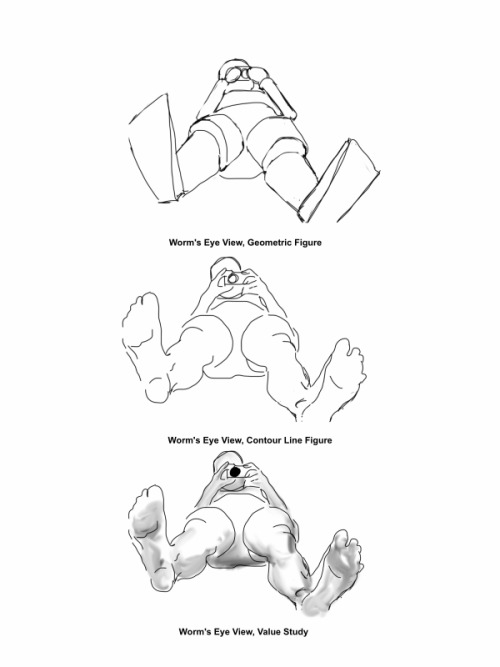

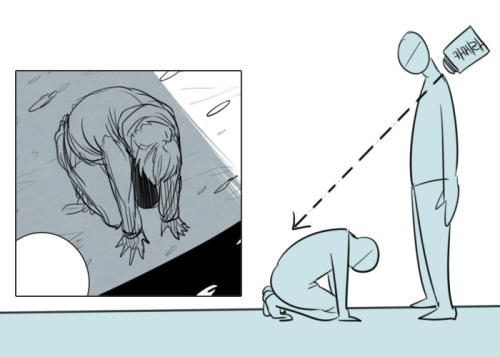
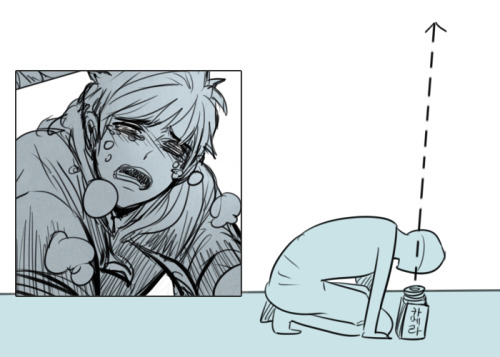
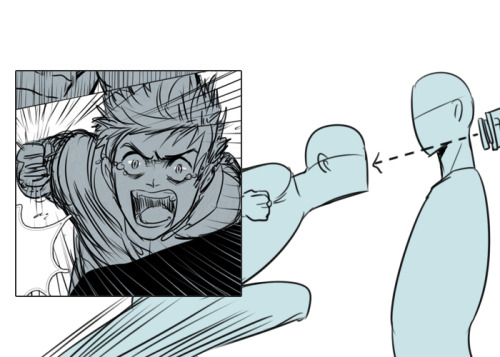
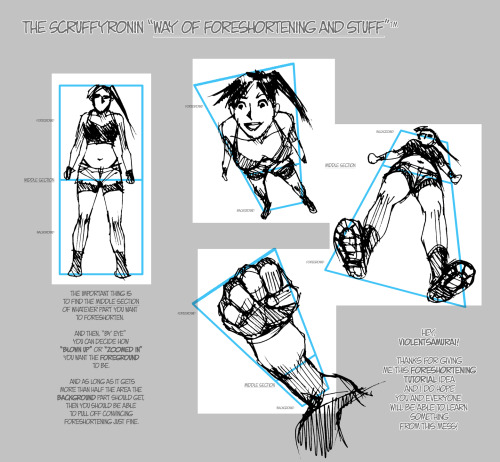
A glorious fuck-ton of perspective angle references (per request).
[From various sources.]
why would you distort “Severus changed sides because of Lily” to “Severus only changed sides because of Lily”? Trying to save someone you care about is a pretty good reason imo.
deltarune soriel comic I did month ago.(2/2)





Hi, I'm not sure if you've talked about this before and it might be silly to ask this, but I'm curious about your opinion:
There was a scene that surprised me quite a bit in episode 6 when Vi escapes. Initially, Silco was sitting calmly, and then boom! Everything explodes. It's understandable, but it's strange because Silco has always reacted in a cautious and calm manner, except for one time in episode 3 when he was talking to Vander. After that, he has been someone who knows how to stay calm. I've seen people say that Silco's reaction is because he's a megalomaniac who doesn't like anything being out of his control, but I don't think that's the case. I think it's something more complex. I see Silco as someone who internalizes everything to maintain control or appears to have it, keeping his thoughts and emotions to himself. That's why you see Silco exhaling or releasing tension before and after meeting with his associates, but I might be wrong. Anyway, I'd like to know what you think is the reason for Silco's actions.
And I'm sorry if I made a mistake in my grammar, I don't speak English very well

Hello anon! Thank you for reaching out and asking me this question... It sends me back to my Arcane meta days with a big smile on my face.
But honestly, I don't know who looks at Silco in that episode, having finished the story, and thinks he screams because he's megalomaniac. Not only does this not go with the rest of his character, it just fails to comprehend his character arc.
Silco doesn't want power. He wants freedom, and he wants his mission to realise itself. Silco has more of a religious fervour to him. He's a zealot. He speaks of the 'Nation of Zaun' with an air of rapture. He believes it, lives only for it. Just because we may not like his ways doesn't change that. I mean look at this guy :

#fully lost in the sauce
A character who really wants power would be Finn. We see him fallen to the trappings of wealth, plotting to uproot Silco from his position. Finn never shows any care for the cause. He only cares about supplanting Silco.
If Silco truly cared about power, then why is he still leaving down deep, on top of a night club? If he's a megalomaniac, why are his list of conditions for Jayce not covering him, but demanding amnesty for his people and equal access to the Gate for commerce?
No. Silco isn't a megalomaniac. He definitely wants to be in control, but that's hardly surprising for a leader. We also only ever know Silco at crazy important moments of his life, where his plans are running wildly or exploding in his face. It's not exactly every day Silco.
Most of the people we see him interacting with also tell us things : of course he needs to be ruthless and in control while facing Marcus. That man would lash out at the slightest show of weakness. Same with the other chembarons, who actively turn on him after the factory attack (that makes him look weak).
Silco isn't a control freak to be a jackass. He's like that because he's a Zaunite, and a Zaunite in a dangerous position of power. He's shaped by his environment too.
Anyway, why does he lose his cool in episode 6?
It's actually a very short answer! It's because of Jinx.
Jinx is his everything. Across my many meta posts I covered how codependent they are. How she physically abuses him, yet he never reaches out with any force towards her. The most violent he is, is after she nearly ruined his life plans and won't listen, and all he does is snatch a pen from her hand to make her pay attention.
They exchange caresses, rest against each other. He keeps her gifts on his official desk and actively uses them. And in the end, he can't accept her mortality, and sacrifices everything he's suffered and fought for his entire sad, fucking miserable life, because he loves her more than his cause.
So why does Silco lose it? Because Vi is alive, Vi is looking for Jinx, and Vi is the only person who could actively take Jinx away from him.
I mean like a day or two prior Jinx lost her shit and nearly killed Sevika because she saw a pink haired girl. Silco takes her to the pilt to try and soothe her and put her demons behind her, the only way he knows how. And then she happily gets to work! She's doing well!
But Silco isn't dumb. He knows Jinx is unstable and unpredictable. And finding Sevika hung like a ham from the ceiling? With a broken arm? Yeah, he knows she knows, and she's pissed... And he KNOWS that he just told her that VI IS DEAD. Which he 100% believed! Since when Sevika tell him about Vi being back he's like "From the dead???" in total horror and disbelief.
Marcus completely blindsided him, and it's a race against time now.
A race in which if Vi lives and finds Jinx... His Jinx, the only person he thinks he has... The girl he loves more than his cause, even if he hasn't fully realised it yet... Might hate him. She might decide to leave him.
Then he'd be alone again. And uhm... IDK if you all noticed but like... Silco isn't exactly a picture of clean mental health either. He's trauma ridden, set in very harsh ways, and has a solid spark of paranoia (which has kept him alive, but also isolated).
So the Silco screaming and spitting and kicking is a Silco who thinks that potentially everything will be fucked up now. He's stressed about the developing situation (the one where he asked his unstable daughter to basically make a nuke with stolen uranium, while juggling an increasingly strained sheriff and actively traitorous colleagues), AND the potential idea of his ONE person, his one broken, fucked up, twisted emotional bond, potentially being ripped from him.
Last time that happened, Vander was trying to drown him.
So he's just in a Bad Place™️
Cut the poor man some slack ahaha. I think it's normal that the mask finally cracks and reveals his emotions.
Silco isn't a cold character! His speech to Vander shows his zealotry and his passion! He has a dark humour too, and is aggressive and bitter when cornered. Silco wears a mask of cool professionalism when it's convenient, which is very often, as a leader in the undercity. But he also shows lots of emotions whenever suits.
I don't think you can be a cold character and stay riveted on your insane freedom fight for like 20+ years. He's got a big fire burning in there, and the scene in episode 6 is the proof of how hot it gets when he thinks he's about to lose it all. All your examples of him 'reining it in' are great too! He clearly has strong emotions. He just manages them a lot.
I hope this answers your question! AAaaaahhhh look at me, I just went and gushed, didn't I?
Thanks a lot Anon. And your English is better than some native speakers I know, so don't worry! <3
Sirius Black, the firstborn. The aristocrat. The one raised in a disgustingly rich, respected, and feared family. Sirius Black, the rebel without a cause, who forged his identity by opposing the values of that family. The tall guy, so handsome that girls couldn’t even concentrate on their exams. The popular one, the one who had it all. The one who didn’t have to worry about running away from home because the loving parents of his also-rich best friend took him in. Sirius Black, the one at the top, the one who did whatever he wanted to those beneath him. The one who spent seven years torturing a poor half-blood just out of boredom, for fun, because he could.
Sirius Black, who looked at that poor half-blood as a representation of everything he hated, everything that disgusted him. Despising him for wanting to go to his family’s house, for wanting to gain power that he—let’s be honest—had possessed from birth. Sirius Black, constantly laughing at Severus Snape, calling him Snivellus, mocking his appearance, ridiculing his poor, downtrodden look, encouraging him to go somewhere he’d likely end up dead. Sirius Black, convinced he was doing nothing wrong because Severus Snape was a piece of shit who followed the Death Eaters, and hurting him was completely justified.
Sirius Black, the brave one, the one who would’ve given his life for the good cause, the one who was on the right side from the beginning, who always knew where he belonged, who went to war and gave it his all—so much that he ended up in prison.
Sirius Black, who escapes Azkaban only to end up in another prison. The one who, locked in his family home, starts to see things for what they are. The one who is no longer a help but a hindrance. The one who is just a ticking time bomb for a Dumbledore who never gave a damn about his zeal for the fight. Sirius Black, who suddenly finds himself facing that same half-blood he used to insult, to hit, to hunt down like a predator after its daily meal. There he is, with them. Severus Snape, the Dark Arts freak, the greasy-haired, Malfoy’s lapdog, the one who followed the pureblood supremacists and bears the Dark Mark. The same Severus Snape who was a Death Eater and followed Voldemort, now stands as Dumbledore’s right-hand man.
And Dumbledore trusts him more than anyone. Trusts him so much that, although neither Lupin, Tonks, nor Moody like having him among their ranks, no one dares say a word against him. Only Sirius speaks up, and when he does, everyone scolds him. Because he’s no longer Snivellus; now he’s Snape. He’s a double agent. He’s someone important. He’s a rook, a bishop, a knight, while the others are mere pawns.
Sirius Black wonders why. Why, if he did everything right, if he stood up to his family, if he always defended what was right, he’s now reduced to a broken toy confined to isolation while that piece of shit who did everything wrong is the one who has Dumbledore’s favor. Because Sirius was always one of the good ones, and Severus was one of the bad ones. Because tormenting and mistreating him was justified. But then he realizes it doesn’t matter. It doesn’t matter who’s good or bad in a war; what matters is how useful you are to those who wage them.
And he has become useless, while Severus is a key piece. And that is the best revenge Severus could have had for all the years of abuse he endured: for Sirius to realize, in the last months of his life, that all his efforts to rebel had meant nothing. In a war against power structures, the aristocratic boy never has a place.*


An emotional first reaction to Arcane's finale
With an accent on Silco's arc...
*Wipes tears away*
Anyway. When was the last time you sat down to a tv show that punched this hard and respected its villain this deeply? Silco is by far the most interesting character, and he carries the show on his scrawny shoulders.
Compelling if mysterious backstory, overcomes his demons and his traitorous brother in one fell swoop as he gains power. Silco's a zealot who dreams big for everyone. And yet in the end he finally understands why Vander did what he did. Finally has an emotional tie on a personal level that means more to him than the Nation Of Zaun, that big all consuming project that's been driving him from the start.
And yet in a completely masterful twist, Vander chosing his daughters over Zaun means the Status Quo, while Silco choosing his daughter over Zaun means War.
He gets everything he ever wanted. He's a villain who uses all ends to reach his goals and actually gets there, and the creative minds behind Arcane had the guts to make it absolutely irrelevant to his death. That is so wild, honestly. His love is his personal downfall (or more likely, the lack of mental health care in the Lanes is his downfall...) but he's never more human and more like Vander than when he dies...
For the creators to chose to NEVER redeem him, and instead just... humanize him to the very end... To let him say his piece and clear out misunderstandings and also to go knowing all his *fucked up* efforts fucking paid off...
*Silco style slow clap*
Fucking bravo.

Turns out Silco wasn't lying, not anymore than any of us do from time to time, even to our loved ones. Turns out that he was really worrying, really caring, and that it was really "just the two of them".
There's plenty wrong with Jinx's arc as a villain in the becoming, the whole "hearing voices makes me unhinged and violent" really isn't palatable.. it's an easy cop-out that puts people with IRL mental illnesses in another toxic limelight.
But there's incredible beauty in her being truly embraced by the villain, for the most wholesome family to really be with him. To be fought for as hard by him, as much as Vander did. Vi doesn't want Jinx. She truly wants "Powder", and even if she probably loves her and probably needs the mental help Vi would desire for her "to change" and "become stable", Jinx's toxic, zealot, asshole second dad loves her exactly as she is. Why the fuck would you not chose that side, being in Jinx's boots?
*chokes up for a minute*

I can't clap my hands hard enough to applaud the team behind Arcane (so I'll use them to write fanfic instead)
How did they manage to break the curse of video game adaptation?
Well, I think it helps that the studio itself retained absolute creative control. For once it's not a film industry giant buying rights and trying to do it's usual "adaptation" cash grab wringer. It's a studio getting another studio to work their (insane) magic and produce the best 9 episodes cinematic we've ever seen.
The vision was theirs, the story was uncompromising and unflinching.
I am not surprised the writing punches this hard. Video game writers know what the fuck they're doing, because they create immersive worlds and storyline in which the players/viewer is directly active. I mean look at other hard gut punches out there like God of War, Wticher 3 or even Jackie's arc in Cyberpunk.
But for them to stick to their guns to the very end... To give us characters this compelling instead of following the cliche route... For them not to betray us, the way so many other storylines do by trying something bold for a hot minute before falling back on tried and true cliches like deflating souflés...
Guys, I'm sorry but even Disney doesn't clap this hard. Arcane came on to the scene and swatted everyone aside. The visuals, the animation style, the music, the cast of character all painted in deep shades of grey, the riveting plot with its series of mirrored pairs going through the same divisive process... Arcane is the show we've all been begging for, but we were asking for it to the wrong people.
Bravo team. None of y'all will ever see this post, but know you're appreciated. You made me scream and choke up and built a whole new condominium in my skull for Silco to live in rent free. Fuck you and bless you, I love you guys.
Hi! I’m part of the lgbtq+ community and Severus is my favorite HP character and I was wondering (if you have the time and feel obliged) if you could please give me a few examples of how he’s queer? It’s been a few years since I reread the books, and def before I came out, so I’m a little in the dark here lol Thanks!!
First of all, I just wanted to apologize for how long it has taken me to properly respond to your ask. I’ve been dealing with some ongoing health issues that have turned me into something of a moody writer. I’ll get random spurts of energy and inspiration and then hit a wall of absolute writer’s block assisted by a major case of executive dysfunction every single time I try to respond to the multiple asks languishing in my inbox. Fortunately, I found myself involved in a discussion just today that addressed your ask so perfectly that I wanted to share it with you. In the very least, that discussion has also managed to shake off my writer’s block temporarily so that I have found myself in the right head-space to finally be able to give this lovely ask the thought and attention that I feel it deserves.
Although, in regards to the Snape discourse I linked above, I feel that I should warn you in advance that the discussion was prompted by an anti-Snape poster who made a rather ill-thought meme (I know there are many in the Snapedom who would rather just avoid seeing anti-Snape content altogether, so I try to warn when I link people to debates and discussions prompted by anti-posts) but the thoughtful responses that the anti-Snape poster unintentionally generated from members of the Snapedom (particularly by @deathdaydungeon whose critical analyses of Snape and, on occasions, other Harry Potter characters is always so wonderfully nuanced, thought-provoking, and well-considered), are truly excellent and worth reading, in my opinion. Also, as I fall more loosely under the “a” (I’m grey-ace/demisexual) of the lgbtqa+ flag and community I would prefer to start any discussions about Snape as a queer character or as a character with queer coding by highlighting the perspectives of people in the Snapedom who are actually queer before sharing any thoughts of my own.
In addition, I also wanted to share a few other posts where Snape’s queer coding has been discussed by members of the Snapedom in the past (and likely with far more eloquence than I could manage in this response of my own).
Source
Source
Source
Source
Source
Source
Source
Source
Source
Source
Along with an excellent article in Vice by Diana Tourjée, in which a case for Snape being trans is convincingly argued.
Importantly, you’ll notice that while some of these discussions do argue the possibility of Snape being a queer or trans character others may only discuss the way that Snape’s character is queer coded. That is because there is a distinct but subtle difference between: “This character could be queer/lgbtq+” and: “This character has queer/lgbtq+ coding” one which is briefly touched on in the first discussion that I linked you to. However, I would like to elaborate a bit here just what I mean when I refer to Snape as a character with queer coding. As while Rowling has never explicitly stated that she intended to write Snape as lgbtq+ (although there is one interview given by Rowling which could be interpreted as either an unintentional result of trying to symbolically explain Snape’s draw to the dark arts or a vague nod to Snape’s possible bisexuality: “Well, that is Snape’s tragedy. … He wanted Lily and he wanted Mulciber too. He never really understood Lily’s aversion; he was so blinded by his attraction to the dark side he thought she would find him impressive if he became a real Death Eater.”) regardless of her intent when she drew upon the existing body of Western literary traditions and tropes for writing antagonists and villains in order to use them as a red-herring for Snape’s character, she also embued his character with some very specific, coded subtext. This is where Death of the Author can be an invaluable tool for literary critics, particularly in branches of literary criticism like queer theory.
Ultimately, even if Rowling did not intend to write Snape as explicitly queer/lgbtq+ the literary tradition she drew upon in order to present him as a foil for Harry Potter and have her readers question whether he was an ally or a villain has led to Snape being queer coded. Specifically, many of the characteristics of Snape’s character design do fall under the trope known as the “queering of the villain.” Particularly, as @deathdaydungeon, @professormcguire, and other members of the Snapedom have illustrated, Snape’s character not only subverts gender roles (e.g. his Patronus presents as female versus male, Snape symbolically assumes the role of “the mother” in the place of both Lily and later Narcissa when he agrees to protect Harry and Draco, his subject of choice is potions and poisons which are traditionally associated more with women and “witches,” while he seemingly rejects in his first introduction the more phallic practice of “foolish wand-waving,” and indeed Snape is characterized as a defensive-fighter versus offensive, in Arthurian mythology he fulfills the role of Lady of the Lake in the way he chooses to deliver the Sword of Gryffindor to Harry, Hermione refers to his hand-writing as “kind of girly,” his association with spiders and spinners also carries feminine symbology, etc.) but is often criticized or humiliated for his seeming lack of masculinity (e.g. Petunia mocking his shirt as looking like “a woman’s blouse,” which incidentally was also slang in the U.K. similar to “dandy” to accuse men of being effeminate, the Marauders refer to Snape as “Snivellus” which suggests Snape is either less masculine because he cries or the insult is a mockery of what could pass for a stereotypical/coded Jewish feature, his nose, Remus Lupin quite literally instructs Neville on how to “force” a Boggart!Snape, who incidentally is very literally stepping out of a closet-like wardrobe, into the clothing of an older woman and I quoted force because that is the exact phrase he uses, James and Sirius flipping Snape upside down to expose him again presents as humiliation in the form of emasculation made worse by the arrival and defense of Lily Evans, etc.).
Overall, the “queering of the villain” is an old trope in literature (although it became more deliberate and prevalent in media during the 1950s-60s); however, in modernity, we still can find it proliferating in many of the Disney villains (e.g. Jafar, Scar, Ursula, etc.), in popular anime and children’s cartoons (e.g. HiM from Powerpuff Girls, James from Pokemon, Frieza, Zarbon, the Ginyu Force, Perfect Cell, basically a good majority of villains from DBZ, Nagato from Fushigi Yuugi, Pegasus from Yu Gi Oh, etc.), and even in modern television series and book adaptations, such as the popular BBC’s Sherlock in the character of Moriarty. Indeed, this article does an excellent job in detailing some of the problematic history of queer coded villains. Although, the most simple summary is that: “Queer-coding is a term used to say that characters were given traits/behaviors to suggest they are not heterosexual/cisgender, without the character being outright confirmed to have a queer identity” (emphasis mine). Notably, TV Tropes also identifies this trope under the classification of the “Sissy Villain” but in queer theory and among queer writers in fandom and academia “queering of the villain” is the common term. This brings me back to Snape and his own queer coding; mainly, because Rowling drew upon Western traditions for presenting a character as a suspected villain she not only wrote Snape as queer (and racially/ethnically) coded but in revealing to the reader that Snape was not, in fact, the villain Harry and the readers were encouraged to believe he was by the narrator she incorporated a long history of problematic traits/tropes into a single character and then proceeded to subvert them by subverting reader-expectation in a way that makes the character of Severus Snape truly fascinating.
We can certainly debate the authorial intent vs. authorial impact where Snape’s character is concerned. Particularly as we could make a case that the polarizing nature of Snape may well be partly the result of many readers struggling against Rowling subverting literary tropes that are so firmly rooted in our Western storytelling traditions that they cannot entirely abandon the idea that this character who all but had the book thrown at him in terms of all the coding that went into establishing him as a likely villain (e.g. similar to Heathcliff in Wuthering Heights, Snape is also coded to be associated with darkness/black colors and to represent danger and volatile/unstable moods, while his class status further characterizes him as an outsider or “foreign other,” and not unlike all those villains of our childhood Disney films which affirmed a more black-and-white philosophy of moral abolutism, such as Scar or Jafar, the ambiguity of Snape’s sexuality coupled with his repeated emasculation signals to the reader that this man should be “evil” and maybe even “predatory,” ergo all the “incel” and friendzone/MRA discourse despite nothing in canon truly supporting those arguments; it seems it may merely be Snape’s “queerness” that signals to some readers that he was predatory or even that “If Harry had been a girl” there would be some kind of danger) is not actually our villain after all.
Indeed, the very act of having Snape die (ignoring, for the moment, any potential issues of “Bury Your Gays” in a queer analysis of his death) pleading with Harry to “look at him” as he symbolically seems to weep (the man whom Harry’s hyper-masculine father once bullied and mocked as “Snivellus”) memories for Harry to view (this time with his permission) carries some symbolic weight for any queer theory analysis. Snape, formerly portrayed as unfathomable and “secretive,” dies while pleading to be seen by the son of both his first and closest friend and his school-hood bully (a son that Snape also formerly could never see beyond his projection of James) sharing with Harry insight into who he was via his personal memories. For Harry to later go on to declare Snape “the bravest man he ever knew” carries additional weight, as a queer theory analysis makes it possible for us to interpret that as Harry finally recognizing Snape, not as the “queer coded villain” he and the reader expected but rather as the brave queer coded man who was forced to live a double-life in which “no one would ever know the best of him” and who, in his final moments at least, was finally able to be seen as the complex human-being Rowling always intended him to be.
Rowling humanizing Snape for Harry and the reader and encouraging us to view Snape with empathy opened up the queer coding that she wrote into his character (intentionally or otherwise) in such a way that makes him both a potentially subversive and inspiring character for the lgbtq+ community. Essentially, Snape opens the door for the possibility of reclaiming a tradition of queer coding specific to villains and demonstrating the way those assumptions about queer identity can be subverted. Which is why I was not at all surprised that I was so easily able to find a body of existing discourse surrounding Snape as a queer coded or even as a potentially queer character within the Harry Potter fandom. At least within the Snapedom, there are many lgbtq+ fans of his character that already celebrate the idea of a queer, bi, gay, trans, ace/aro, or queer coded Snape (in fact, as a grey-ace I personally enjoy interpreting Snape through that lens from time-to-time).
Thank you for your ask @pinkyhatespink and once again I apologize for the amount of time it’s taken me to reply. However, I hope that you’ll find this response answered your question and, if not, that some of the articles and posts from other pro-Snape bloggers I linked you to will be able to do so more effectively. Also, as a final note, although many of the scholarly references and books on queer coding and queering of the villain I would have liked to have sourced are typically behind paywalls, I thought I would list the names of just a few here that I personally enjoyed reading in the past and that may be of further interest should you be able to find access to them.
Fathallah, Judith. “Moriarty’s Ghost: Or the Queer Disruption of the BBC’s Sherlock.” Television & New Media, vol. 16, no. 5, 2014, p. 490-500.
Huber, Sandra. “Villains, Ghosts, and Roses, or How to Speak With The Dead.” Open Cultural Studies, vol. 3, no. 1, 2019, p. 15-25.
Mailer, Norman. “The Homosexual Villain.” 1955. Mind of an Outlaw: Selected Essays, edited by Sipiora Phillip, Random House, 2013, pp. 14–20.
Solis, Nicole Eschen. "Murder Most Queer: The Homicidal Homosexual in the American Theater.” Queer Studies in Media & Pop Culture, vol. 1, no. 1, 2016, p. 115+.
Tuhkanen, Mikko. “The Essentialist Villain.” Jan. 2019, SBN13: 978-1-4384-6966-9
Doomfist must have to deal with a lot of shit in Talon between everybody. Like a 7 foot tall HR manager. Could we get sone interractions reflecting this?
I love Beleaguered Manager Doomfist so much you don’t even know.
-----
Doomfist: I always love hearing about your side projects, Sombra, what are you up to these days?
Sombra: Oh I keep myself busy. You hear about the mysterious disappearance of that Axiom hedge fund manager and all of her assets?
Doomfist: ...I must admit, I have not.
Sombra: Exactly.
----
Doomfist: So... how is your list coming along?
Reaper: *snarling scoff*
Doomfist: I’m not saying there’s a deadline, I’m just wondering about your progress.
----
Moira: I must say, this organization seems put to right now that Vialli isn’t around to obsess over every penny.
Doomfist: Ideology must always come first, Moira, I know we can agree on that. Though I must ask, does the R&D department really need six different acid tubs?
Moira: Incompetent labtechs must be made example of--er--I mean it’s very important to my research.
----
Sigma: I deeply appreciate my new accommodations, Mr. Ogundimu, and I don’t mean to intrude, but I don’t know who else to ask about this and there seems to be a consistent issue with a lack of coffee stirrers in the break room. I don’t know who keeps using them all, but--
Doomfist: ...you literally can create angular velocity with your gravity powers. You can stir with your mind.
Sigma: Yes, but it’s the principle of it---and I find the gesture calming.
Doomfist: *sigh* I’ll look into it.
-
 a-streetcar-named-fitzwilliams reblogged this · 2 months ago
a-streetcar-named-fitzwilliams reblogged this · 2 months ago -
 baked-u-beanie liked this · 5 months ago
baked-u-beanie liked this · 5 months ago -
 sweetcoolcaffe reblogged this · 7 months ago
sweetcoolcaffe reblogged this · 7 months ago -
 mutechild liked this · 11 months ago
mutechild liked this · 11 months ago -
 bbygrlbruno reblogged this · 11 months ago
bbygrlbruno reblogged this · 11 months ago -
 tentacooltrumpets reblogged this · 1 year ago
tentacooltrumpets reblogged this · 1 year ago -
 tentacooltrumpets liked this · 1 year ago
tentacooltrumpets liked this · 1 year ago -
 neogotchi liked this · 1 year ago
neogotchi liked this · 1 year ago -
 misscrunchy liked this · 1 year ago
misscrunchy liked this · 1 year ago -
 picklerocket liked this · 1 year ago
picklerocket liked this · 1 year ago -
 casperolivervo reblogged this · 1 year ago
casperolivervo reblogged this · 1 year ago -
 casperolivervo liked this · 1 year ago
casperolivervo liked this · 1 year ago -
 damnednomatterwhat liked this · 1 year ago
damnednomatterwhat liked this · 1 year ago -
 stardust-creature liked this · 1 year ago
stardust-creature liked this · 1 year ago -
 fushsiaelectrica reblogged this · 1 year ago
fushsiaelectrica reblogged this · 1 year ago -
 allehufflepuff liked this · 1 year ago
allehufflepuff liked this · 1 year ago -
 rafacatsete liked this · 1 year ago
rafacatsete liked this · 1 year ago -
 hoodedandflying reblogged this · 1 year ago
hoodedandflying reblogged this · 1 year ago -
 hoodedandflying liked this · 1 year ago
hoodedandflying liked this · 1 year ago -
 gaydino1 liked this · 1 year ago
gaydino1 liked this · 1 year ago -
 my-syrok liked this · 1 year ago
my-syrok liked this · 1 year ago -
 nenesstansunthings liked this · 1 year ago
nenesstansunthings liked this · 1 year ago -
 chiefrebelmentality reblogged this · 1 year ago
chiefrebelmentality reblogged this · 1 year ago -
 coco177 liked this · 1 year ago
coco177 liked this · 1 year ago -
 tremendouscloudpandapatrol liked this · 1 year ago
tremendouscloudpandapatrol liked this · 1 year ago -
 animatedbooklover liked this · 1 year ago
animatedbooklover liked this · 1 year ago -
 22heartsongs liked this · 1 year ago
22heartsongs liked this · 1 year ago -
 encanto-nerd reblogged this · 1 year ago
encanto-nerd reblogged this · 1 year ago -
 encanto-nerd liked this · 1 year ago
encanto-nerd liked this · 1 year ago -
 b0dyhorrors liked this · 1 year ago
b0dyhorrors liked this · 1 year ago -
 asexualfromhell liked this · 1 year ago
asexualfromhell liked this · 1 year ago -
 apocalypticinsomnia liked this · 1 year ago
apocalypticinsomnia liked this · 1 year ago -
 marsfriend liked this · 1 year ago
marsfriend liked this · 1 year ago -
 purplelemongrasshowelse liked this · 1 year ago
purplelemongrasshowelse liked this · 1 year ago -
 uncreativepseudonym liked this · 1 year ago
uncreativepseudonym liked this · 1 year ago -
 g0blinwitch liked this · 1 year ago
g0blinwitch liked this · 1 year ago -
 thehappyend1ng liked this · 1 year ago
thehappyend1ng liked this · 1 year ago -
 talesofruby01 liked this · 1 year ago
talesofruby01 liked this · 1 year ago -
 alternateinteriorangle liked this · 1 year ago
alternateinteriorangle liked this · 1 year ago -
 terezipyropescrocs reblogged this · 1 year ago
terezipyropescrocs reblogged this · 1 year ago -
 homeybadger liked this · 1 year ago
homeybadger liked this · 1 year ago -
 darkestday828 reblogged this · 1 year ago
darkestday828 reblogged this · 1 year ago -
 khayltille reblogged this · 1 year ago
khayltille reblogged this · 1 year ago -
 ifailedthecaptcha liked this · 1 year ago
ifailedthecaptcha liked this · 1 year ago -
 helloooooodolly reblogged this · 1 year ago
helloooooodolly reblogged this · 1 year ago -
 coda-clownery liked this · 1 year ago
coda-clownery liked this · 1 year ago -
 magicalmarkers reblogged this · 1 year ago
magicalmarkers reblogged this · 1 year ago -
 wyrmrrow liked this · 1 year ago
wyrmrrow liked this · 1 year ago -
 cauli-flawa liked this · 2 years ago
cauli-flawa liked this · 2 years ago